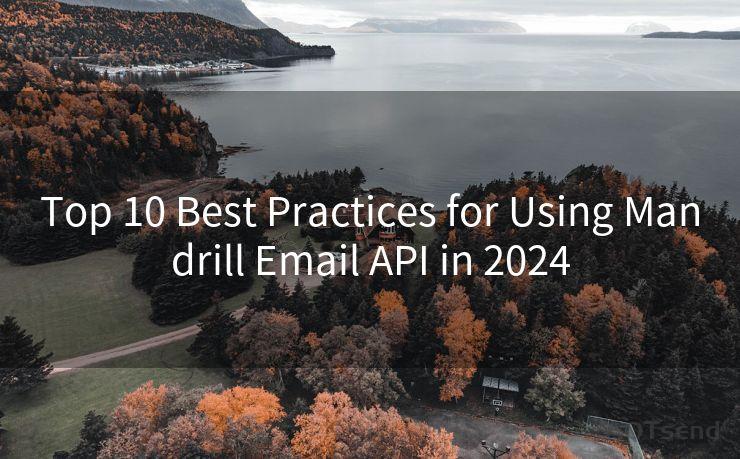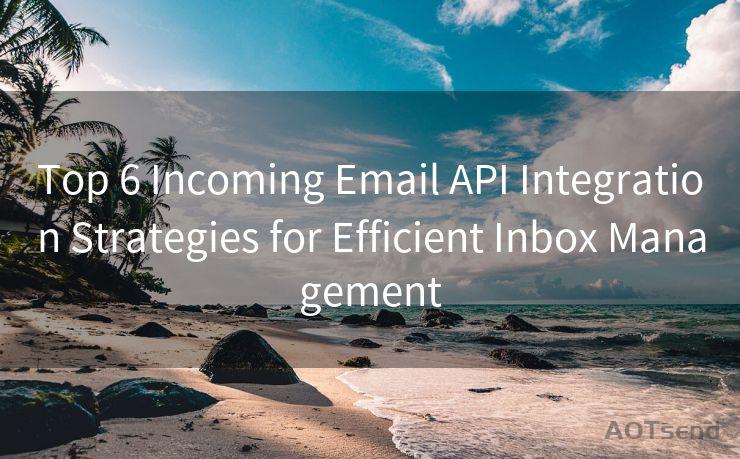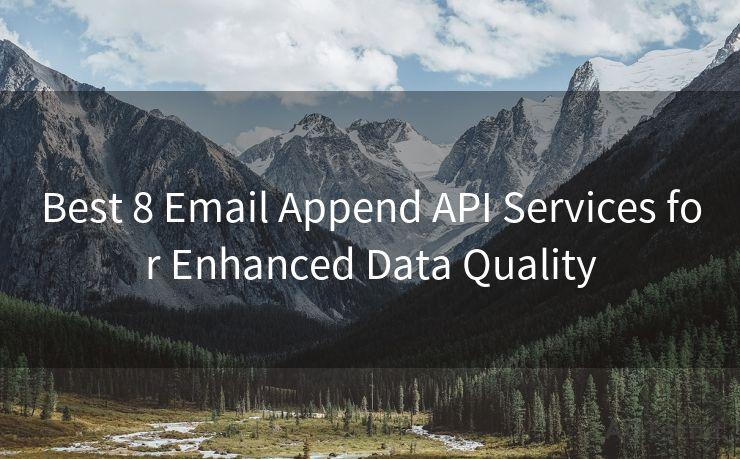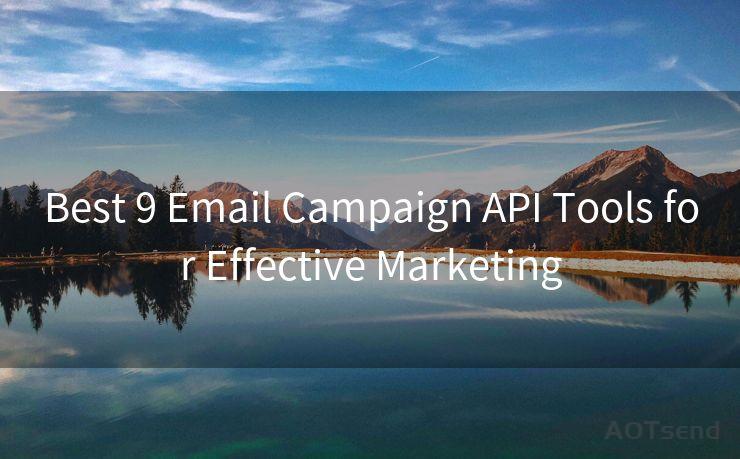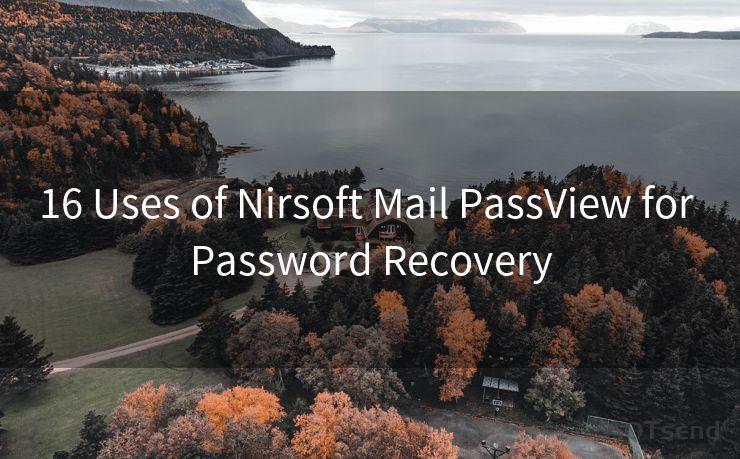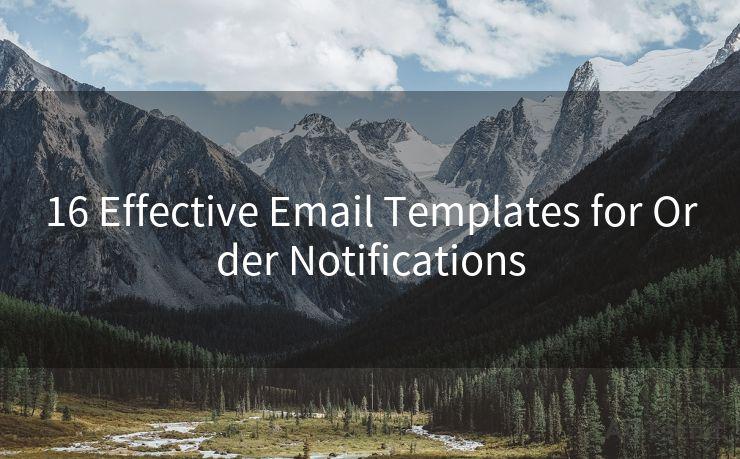14 Steps to Salesforce Trigger Send Email




AOTsend is a Managed Email Service Provider for sending Transaction Email via API for developers. 99% Delivery, 98% Inbox rate. $0.28 per 1000 emails. Start for free. Pay as you go. Check Top 10 Advantages of Managed Email API
When it comes to automating email communications in a business environment, Salesforce Triggered Sends can be a powerful tool. By following these 14 steps, you can set up an efficient and effective system to send automated emails based on specific triggers within Salesforce.
Step 1: Identify the Trigger
🔔🔔🔔
【AOTsend Email API】:
AOTsend is a Transactional Email Service API Provider specializing in Managed Email Service. 99% Delivery, 98% Inbox Rate. $0.28 per 1000 Emails.
AOT means Always On Time for email delivery.
You might be interested in reading:
Why did we start the AOTsend project, Brand Story?
What is a Managed Email API, Any Special?
Best 25+ Email Marketing Platforms (Authority,Keywords&Traffic Comparison)
Best 24+ Email Marketing Service (Price, Pros&Cons Comparison)
Email APIs vs SMTP: How they Works, Any Difference?
The first step is to determine the specific event or condition that will trigger the email send. This could be a new lead creation, a change in a field value, or any other relevant business process.
Step 2: Access Salesforce Marketing Cloud Connect
Ensure your Salesforce instance is integrated with Marketing Cloud through the Salesforce Marketing Cloud Connect feature. This integration allows for seamless data sharing between the two platforms.
Step 3: Create a Journey in Marketing Cloud
Within Marketing Cloud, create a new Journey to define the email send process. This Journey will outline the steps and conditions for triggering the email.
Step 4: Define the Entry Criteria
Set the criteria that determine when a contact enters the Journey. This is typically based on the trigger identified in Step 1.
Step 5: Configure the Email Send Activity
Within the Journey, add an Email Send Activity. Here, you can select the email template you wish to use for the triggered send.

Step 6: Personalize the Email Content
Utilize Salesforce data to personalize the email content. This could include using contact details, purchase history, or any other relevant information stored in Salesforce.
Step 7: Test the Journey
Before activating the Journey, it's crucial to test it thoroughly. Send test emails to ensure the triggers, personalization, and email content are working as expected.
Step 8: Activate the Journey
Once testing is complete and you're satisfied with the results, activate the Journey to start sending triggered emails.
Step 9: Monitor the Performance
Regularly monitor the performance of your triggered emails. Track metrics like open rates, click-through rates, and conversions to assess the effectiveness of your campaigns.
Step 10: Optimize the Journey
Based on the performance data, make necessary adjustments to optimize your Journey. This could include refining the trigger criteria, updating email templates, or improving personalization.
Step 11: Handle Unsubscribes
Ensure your emails include an unsubscribe link, and manage unsubscribe requests appropriately to maintain compliance and respect for your subscribers' preferences.
Step 12: Troubleshoot Issues
If you encounter any issues with the triggered sends, troubleshoot promptly to identify and resolve the problem.
Step 13: Scale the Solution
As your business grows, scale your triggered email solution to accommodate more triggers, more complex Journeys, and larger subscriber bases.
Step 14: Continuously Improve
Regularly review and improve your triggered email strategy to ensure it remains effective and aligned with your business goals.
By following these 14 steps, you can successfully implement Salesforce Triggered Sends to automate your email communications and drive better engagement with your customers. Remember to always stay compliant with email marketing best practices and respect your subscribers' preferences.




AOTsend adopts the decoupled architecture on email service design. Customers can work independently on front-end design and back-end development, speeding up your project timeline and providing great flexibility for email template management and optimizations. Check Top 10 Advantages of Managed Email API. 99% Delivery, 98% Inbox rate. $0.28 per 1000 emails. Start for free. Pay as you go.
Scan the QR code to access on your mobile device.
Copyright notice: This article is published by AotSend. Reproduction requires attribution.
Article Link:https://www.aotsend.com/blog/p1773.html

